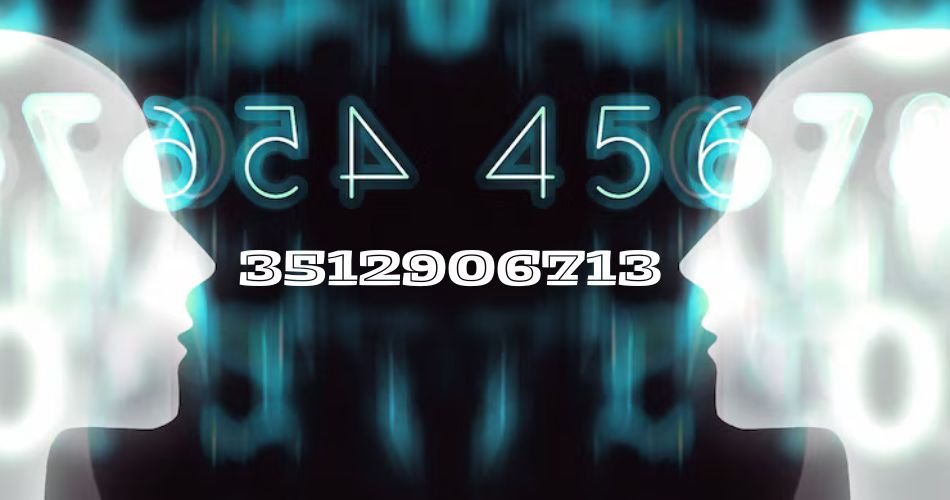In today’s hyper-connected world, seeing a number like 3512906713 pop up unexpectedly can trigger instant curiosity. Whether it appears as a missed call, a text message, a reference code, or embedded in some obscure data, the randomness of such a number makes people stop and wonder. With ten digits and no immediate context, 3512906713 seems like it should mean something. Our minds are naturally drawn to patterns, and when something doesn’t immediately make sense—especially when it’s numerical—it’s easy to get pulled into theories, questions, and searches. The curiosity surrounding this number isn’t unique; random long numbers often spark online interest, especially when they appear in unexpected places.
Could 3512906713 Be a Phone Number?
One of the most straightforward explanations for 3512906713 is that it’s a phone number. In the U.S., ten-digit numbers are standard, typically formatted as (XXX) XXX-XXXX. When formatted as (351) 290-6713, the number begins with an area code that is legitimately used in Massachusetts. That instantly gives us a geographical clue. Area code 351 serves several cities in Massachusetts and overlays with the 978 area code. This number could potentially belong to a business, private citizen, or even an automated service. In many cases, numbers like these belong to customer service departments, call centers, or even robocalls, making them hard to trace unless specifically reported. Receiving a call from a number like this may simply mean a marketing attempt or a survey, but in rare situations, it could indicate something more malicious.
Spam, Scams, and Suspicious Calls from 3512906713
Unfortunately, unknown numbers—especially ones like 3512906713 that lack clear identifiers—often trigger concerns over spam or scam activity. Thousands of people every day receive calls from numbers they don’t recognize, only to answer and hear robotic voices or suspicious requests for personal information. These types of calls are often automated systems attempting to either verify that a number is active or trick people into giving away sensitive data. If 3512906713 is part of such a system, it could be reported as a “scam likely” number on call screening apps such as TrueCaller or Hiya. Conducting a reverse lookup can sometimes reveal if others have flagged the number. Caution is always advised—if you see 3512906713 calling your phone, it’s wise not to answer unless you’re expecting a call from someone in the Massachusetts area.
The Marketing and Business Use of Numbers Like 3512906713
On the flip side, many businesses use seemingly random numbers like 3512906713 for legitimate marketing purposes. These numbers are often assigned temporarily by customer relationship management (CRM) software to track specific campaigns. For example, a company may use a rotating pool of phone numbers to measure which advertisements are leading to the most engagement. These are sometimes referred to as dynamic phone numbers. If you’ve recently interacted with an online service, clicked on an ad, or submitted a form, your number might be added to a call list, and 3512906713 could be used to reach you. While not inherently harmful, such numbers can be annoying, especially if the caller refuses to honor opt-out requests. Businesses should follow best practices and regulations like the Telephone Consumer Protection Act (TCPA), but unfortunately, not all do.
3512906713 as a Data Identifier or Tracking Code
Beyond phone calls, 3512906713 may exist as a digital identifier within various backend systems. Tech companies, e-commerce platforms, and logistics services often rely on long numeric strings to identify users, transactions, or assets. In this sense, 3512906713 might not be meant for public viewing at all—it could be an internal tracking ID, a part number, a customer code, or a case reference in a larger system. These identifiers are usually generated automatically and are rarely reused, making them unique and confidential. You might see such a number in your email if you’ve submitted a ticket or a request to a support center, or in the order history from a vendor. They may look cryptic, but often hold no deeper meaning outside of their assigned system.
Exploring the Numerological Significance of 3512906713
To those who believe in numerology, every number carries a spiritual or cosmic vibration. When broken down, 3512906713 consists of the digits 3, 5, 1, 2, 9, 0, 6, 7, 1, and 3. In numerological terms, each digit represents a specific energy. The number 3 symbolizes creativity and expression, 5 denotes change and unpredictability, and 1 represents leadership and new beginnings. Meanwhile, 2 stands for harmony, 9 suggests endings and transformation, 0 is seen as a circle of infinite potential, and 6 and 7 reflect nurturing and spiritual insight, respectively. The fact that some numbers repeat, like 1 and 3, suggests an emphasis on those characteristics. Though it’s speculative, someone attuned to numerology might interpret 3512906713 as a message or sign related to personal growth and transformative decisions.
The Role of Random Numbers in Online Culture and Memes
Numbers like 3512906713 occasionally find themselves becoming part of viral content or online discussions. Whether it’s a conspiracy theory, creepypasta, or a meme, random digits can easily become symbols of deeper meaning—real or imagined. Consider past cases where people obsessed over mystery numbers appearing in voicemails or encrypted messages. Sometimes, all it takes is one Reddit thread or TikTok video speculating about a number to catapult it into the spotlight. If someone claims 3512906713 is linked to a secret message, it could snowball into mass online interest. So far, this number hasn’t reached that level of attention, but in the digital age, that could change in an instant.
The Psychology Behind Our Obsession With Numbers Like 3512906713
Why do we care so much about a number like 3512906713? The answer lies in human psychology. The Baader-Meinhof phenomenon—or frequency illusion—explains why, once we see something, we begin to notice it everywhere. It’s a cognitive bias that tricks the brain into believing a number or concept has suddenly become more frequent when it hasn’t. Combine that with our innate desire for patterns and meaning, and it makes perfect sense why we become obsessed with unexplained numbers. We are natural problem-solvers, and something as basic as a number without context becomes a puzzle waiting to be solved.
Could 3512906713 Be a Password or Security Code?
Another possibility is that 3512906713 serves as a password, PIN, or other security token. Many people still use easily-typed numeric passwords out of convenience. A 10-digit number could theoretically serve as a login credential, especially in legacy systems or older devices. However, using such predictable numeric combinations is a significant security risk. Hackers can easily run brute-force attacks that test millions of such combinations in minutes. If you’re using this number—or any similar numeric sequence—as a password or access code, it would be best to replace it with a more complex and secure format immediately.
Technical and IoT Associations of 3512906713
In the expanding world of the Internet of Things (IoT), every device connected to a network requires an identifier. Numbers like 3512906713 could be embedded in devices as serial numbers, firmware identifiers, or MAC addresses. Manufacturers often assign these numbers during production, and while users may rarely see them, they exist behind the scenes for device management. These numbers help track usage, maintenance schedules, and even location data. It’s possible that 3512906713 was displayed during a setup screen, on packaging, or within software logs. While seemingly random, these identifiers are essential for ensuring the functionality of a connected ecosystem.
How to Investigate the Origin of 3512906713
If you’re genuinely interested in discovering the origin of 3512906713, there are several steps you can take. A reverse phone number lookup on reputable websites might reveal if the number is active, who it belongs to, and whether it has been reported as suspicious. You can also paste the number into Google to see if it has been mentioned on forums, articles, or incident reports. If you think it may be a tracking code or part number, searching in the context of a service (like Amazon, FedEx, or a CRM system) might help. Just remember not to input the number into unverified websites or respond to calls or messages unless you’re certain it’s safe.
Final Thoughts on 3512906713
Ultimately, 3512906713 is a number wrapped in mystery, at least on the surface. It could be a benign phone number, a spam caller, a database entry, or something completely harmless like a placeholder in an internal system. While it’s tempting to give meaning to everything unusual, sometimes a number is just a number. Still, the attention such strings of digits attract reflects how deeply numbers are woven into our digital lives. Whether it leads to a new discovery, an internet theory, or simply a blocked call, 3512906713 reminds us that in the information age, even the smallest details can spark the biggest questions.






